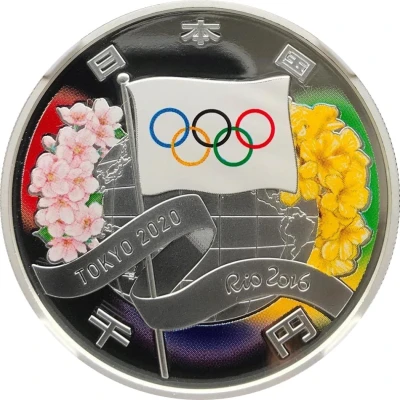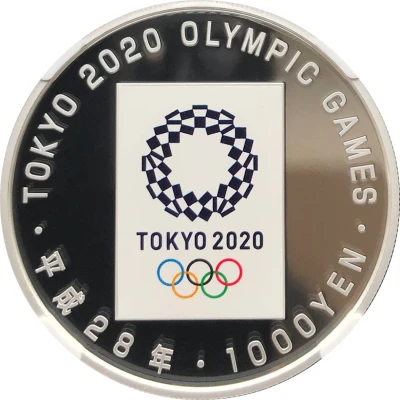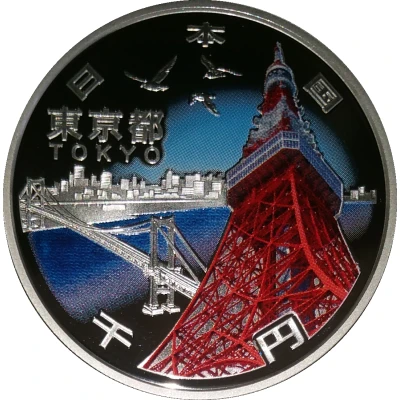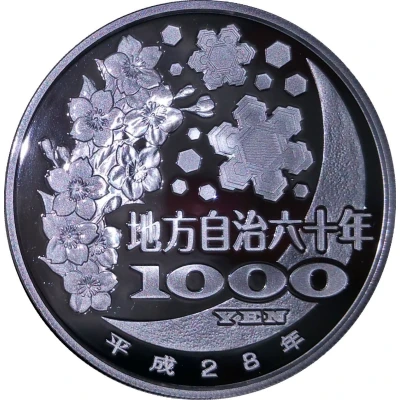
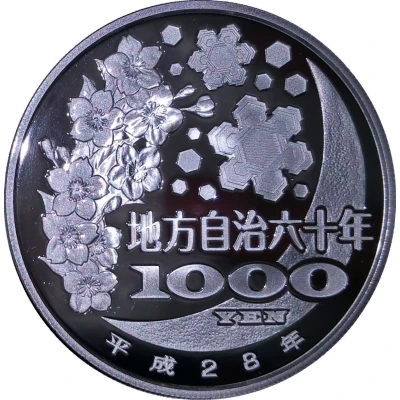

Obverse © Japan Mint – Reverse © OLB
1000 Yen - Heisei Fukushima
28 (2016) year| Silver (.999) | 31.1 g | 40.0 mm |
| Issuer | Japan |
|---|---|
| Emperor | Heisei (1989-2019) |
| Type | Non-circulating coin |
| Year | 28 (2016) |
| Calendar | Japanese - Heisei era |
| Value | 1000 Yen 1000 JPY = USD 6.72 |
| Currency | Yen (1871-date) |
| Composition | Silver (.999) |
| Weight | 31.1 g |
| Diameter | 40.0 mm |
| Thickness | 3.5 mm |
| Shape | Round |
| Technique | Milled, Coloured |
| Orientation | Medal alignment ↑↑ |
| Updated | 2024-10-05 |
| Numista | N#123697 |
|---|---|
| Rarity index | 86% |
Reverse
Cherry blossoms, crescent and snowflakes.
Latent images in largest snowflake.
Lettering:
(47/60)
地方自治六十年
1000
YEN
平成28年
Translation:
60 years of local autonomy
1000
Yen
Year 28 of Heisei
Edge
Slanted reeding right
Comment
Hideyo Noguchi was a prominent bacteriologist from Fukushima Prefecture, who was engaged in bacteriological study at the Rockefeller Institute for Medical Research and is well-known for his work on yellow fever, syphilis and other diseases. During his research on yellow fever in Accra, Ghana, he himself contracted the disease and died there at the age of 51.Bandaisan (Mt. Bandai) is located in Inawashiro Town, Bandai Town and Kitashiobara Village, in the Yama District of Fukushima Prefecture, Mt. Bandai has been named one of the hundred most famous mountains in Japan. Sometimes called Aizu Fuji or Aizu Bandaisan, the mountain is a landmark of Fukushima.
Inawashiroko (Lake Inawashiro) is located in the cities of Aizuwakamatsu and Koriyama, as well as in Inawashiro Town in the Yama District of Fukushima Prefecture, Lake Inawashiro is the fourth largest lake in Japan. Lying nearly in the center of the prefecture, it is one of Fukushima’s most famous landmarks. The lake was recognized as the lake with the best water quality in Japan four years in a row from 2002 to 2005.
Interesting fact
The 1000 Yen - Heisei (Fukushima) 28 (2016) coin from Japan features a unique design that commemorates the 28th year of the Heisei era, which corresponds to the period between 1989 and 2019. The coin's design includes an image of a phoenix, which is a symbol of rebirth and renewal, and is meant to represent the region's recovery from the devastating earthquake and tsunami that occurred in 2011.
Price
| Date | Mintage | VG | F | VF | XF | AU | UNC |
|---|---|---|---|---|---|---|---|
| 28 (2016) | 100000 | - | - | - | - | - | - |
Values in the table are based on evaluations by sales realized on Internet platforms. They serve as an indication only for 1000 Yen - Heisei (Fukushima) 28 (2016) coin.
